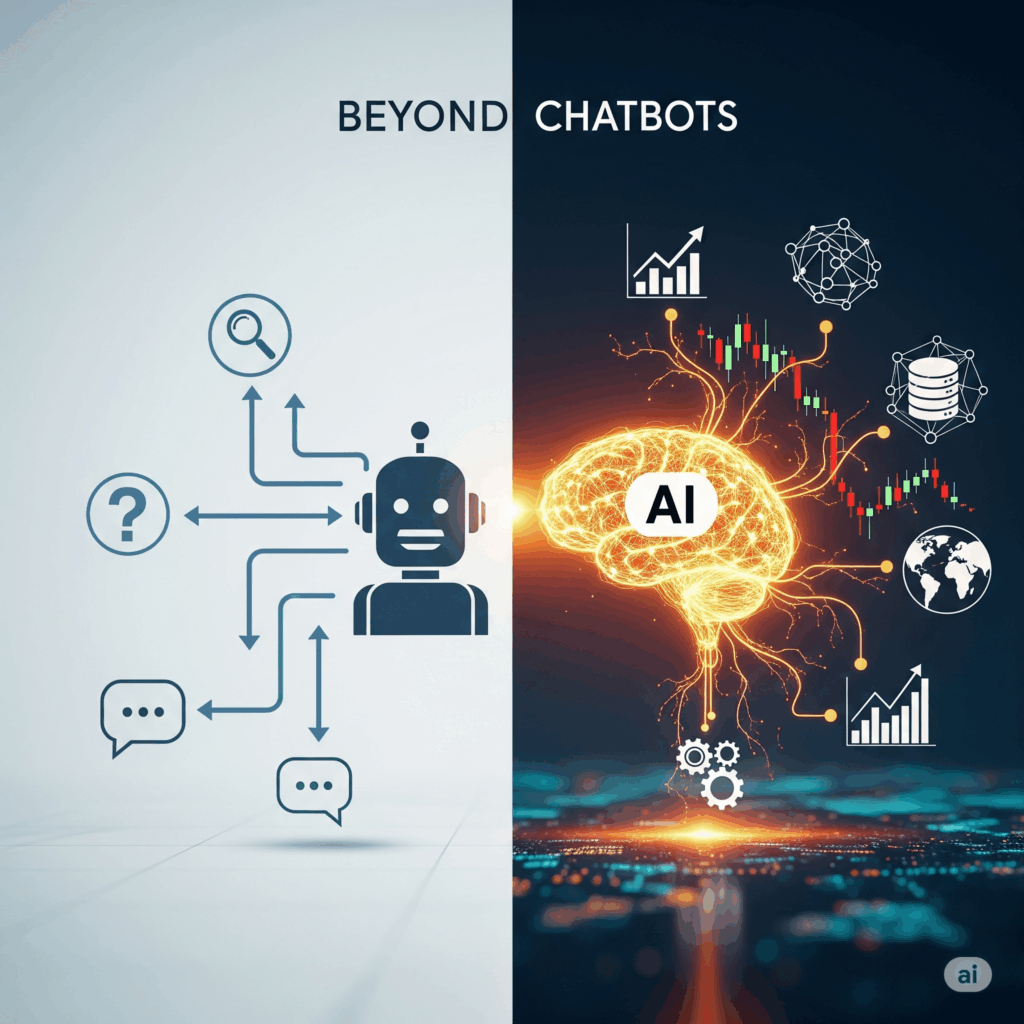Beyond Chatbots: How Autonomous AI Solves Real Business Problems

We’ve all been there. You set up an automated workflow, a data-moving script, or a helpful chatbot to answer common questions. It works beautifully… until it doesn’t.
A customer asks a slightly different question. An invoice arrives in a new format. A request comes in that doesn’t fit the pre-defined boxes. And just like that, the system grinds to a halt, creating a new manual task for your team to fix.
This is the frustrating limit of basic automation. It’s fast, but it’s fragile. The future of business isn’t just about being faster—it’s about being smarter. The future is moving from simple automation to true autonomy.
The Difference Between a Train and an All-Terrain Vehicle
Think of basic automation as a train on a track. It’s incredibly powerful and efficient, but it can only go where the tracks are laid. If a rock falls on the track, the entire system stops.
An autonomous AI agent, on the other hand, is like an expert driver in an all-terrain vehicle. It has a destination in mind (like processing a payment or resolving a customer issue), but it can navigate unexpected terrain. It can find new routes, overcome obstacles, and adapt its path to get the job done.
So, What Makes an AI Agent Genuinely “Smart”?
Unlike a simple chatbot that follows a rigid script, an autonomous agent is designed to understand, reason, and act independently. Here’s how:
- They Understand Context, Not Just Commands: You don’t need to give it a perfect, pre-written prompt. An agent can interpret complex, ambiguous, real-world language and figure out the actual goal.
- They Learn on the Job: When an agent encounters new information or a new type of problem, it learns from the experience. It gets better over time without a developer needing to constantly update its code.
- They Make Independent Decisions: An agent can gather information from different sources (like emails, databases, and documents), analyze it, and make a logical decision to solve a problem on its own.
A Real-World Example: The Invoice Headache
Let’s see this in action with a common business headache: processing invoices.
- The Basic Script: Your old automation script is trained to find the “Amount Due” on line 12 of a specific template. But when a new vendor sends an invoice with a different layout, the script fails. It can’t find the data, flags an error, and adds another task to your team’s to-do list.
- The AI Agent: The autonomous agent receives the new invoice. It doesn’t just look for data in a fixed spot. It understands the document is an invoice. It intelligently scans and identifies the key information—like the vendor name, due date, and total amount—no matter the layout. It processes the payment correctly and, most importantly, updates its own understanding for the next time it sees that format.
This is how we move beyond simply cutting costs. Autonomous systems build resilient and intelligent businesses. They handle the complex, repetitive work, freeing up your team to focus on the creative, strategic tasks that drive real growth.
What is one business process you wish was truly autonomous?
I’d love to hear about your challenges in the comments below. Let’s discuss how your business can move from simple scripts to genuinely smart systems.
#AIAgents #AutonomousSystems #BusinessAutomation #DigitalTransformation #AI #LLM #Innovation #Efficiency